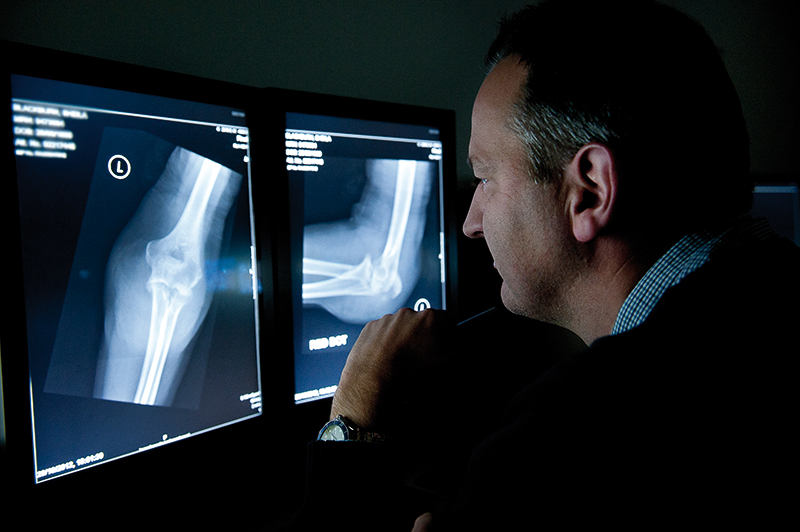Authors: Lead radiographer Mark Sherratt and SoR learning rep John Gaunt from Bronglais Hospital, Aberystwyth consider the risks of outsourcing radiology services.
It is now an accepted fact that demands on radiology services are rising. Some say faster than ever. There are hospitals in Wales where activity in MRI has risen by 300% in five years.
To make matters worse, radiologist and radiographer vacancies remain unfilled. This has led to a reporting capacity ‘black hole’.
For years we have pushed the modernisation agenda and radiographers (and assistants) and patients have benefited. There has been an increase in the number of reporting radiographers, advanced practitioners and assistant practitioners.
However, because of the general lack of staff, many centres report that their advanced practice radiographers are only reporting one or two days a week; the rest of the time they are being used as backfill on the ‘shop floor’.
So, how does the reporting black hole get patched?
An obvious response is to approach one of the growing number of remote reporting companies. These are private companies who offer, for a cost, a comprehensive image reporting service. They can provide their service 24/7 from wherever they happen to be in the world, and respond with good to excellent turnaround times.
They have a unit cost so charge the same to report a chest/abdomen/pelvis CT, irrespective of whether it is a complex staging scan or trauma series. They are happy to accept studies that in-house reporters lack the skill or the motivation to report.
When originally set up, these companies offered out-of-hours services where emergency scans were sent digitally by the radiographer. A true God-send to the on-call radiologist who would be expected to work the following day.
Over the years, with the development in DICOM transfer speeds, even the very largest studies can now be transferred in minutes. Technical advances mean that the NHS databases can be reviewed remotely, giving the outsourced companies access to previous patient images and data. This means the radiographer is not required to sit at the PC any longer than needs be and can instead get on with more urgent work.
Other developments include software programmes that search hospital databases, looking for old unreported images which then automatically transfer to the company for reporting. Sounds amazing, right?
Well, maybe not. Like the drug dealer who entices the addict, knowing that the more he uses, the more he will need, so could radiology departments follow the pattern of addiction and reliance until they become hooked. There is a cyclical nature to it...
At the moment, as this cycle is continuing unchecked, it is possible to see a future where all of the NHS radiology reporting is outsourced to privately run companies – companies that exist fundamentally to make a profit. One can argue this is creeping privatisation of radiology, a major aspect of NHS diagnostics.
So, what can we do? Our problem is made worse by the fact that senior managers are under significant pressure to deliver and see outsourcing not as a temporary fix, but as the solution.
Senior level decision-makers are often the most risk adverse, and would rather play out the rest of their careers taking no chances with reporting delays – even if costs are high, they can be managed in the short-term. There is no need to worry about the future as that will be someone else’s problem, a sentiment akin to climate change and global warming.
We need to change this myopic view and ensure we are not complacent about the long-term damage short-termism can have.
